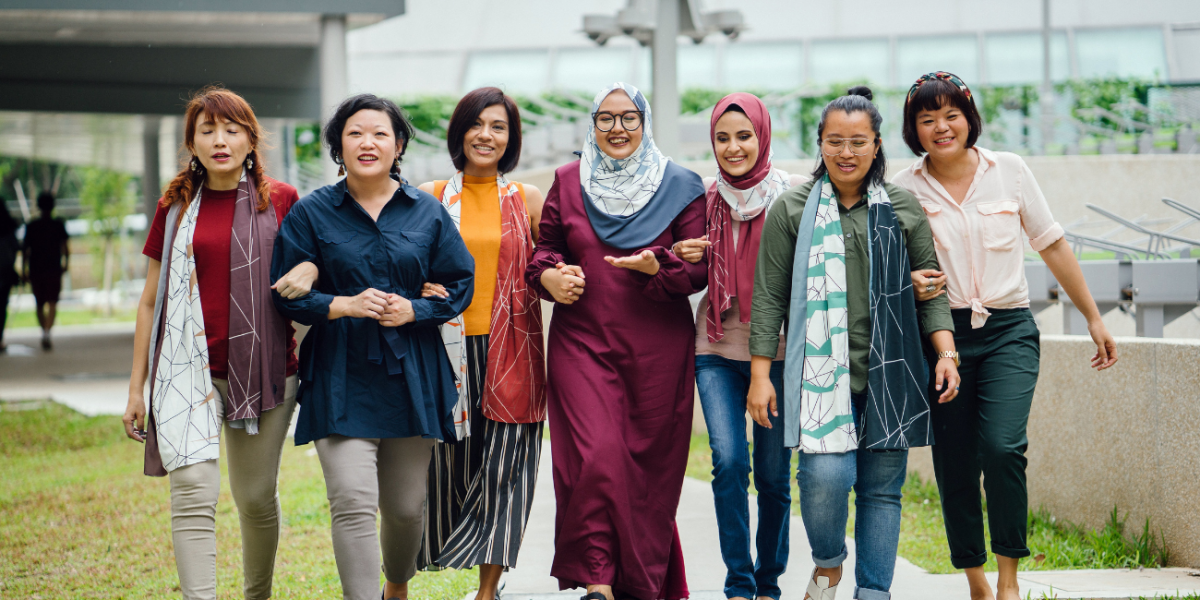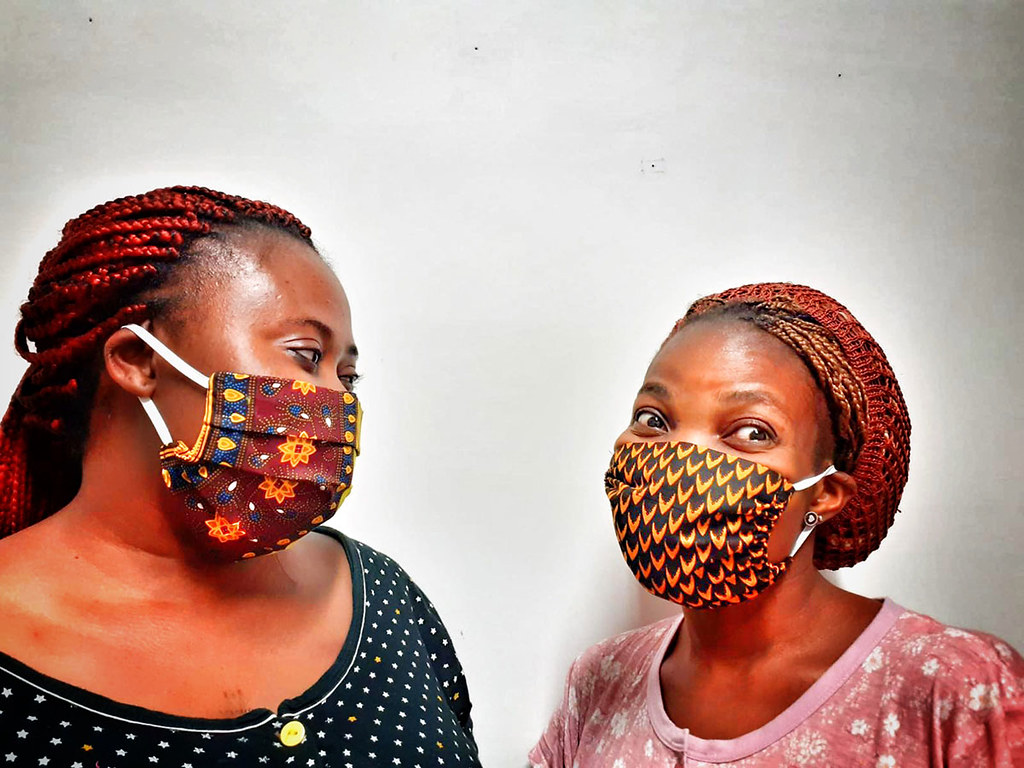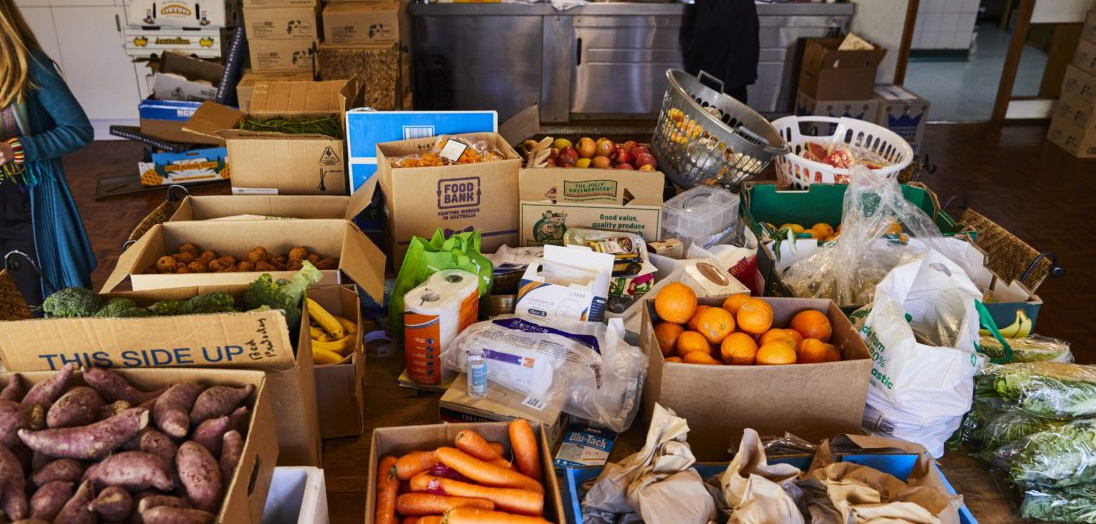
When I first meet with a client, I hand her three pieces of paper, each one representing her past, present, and future respectively. I ask her to think about all the things that she no longer wants in her life and to write them down. She scrunches this piece of paper up and throws it away. On the second paper she will write about everything that is currently going on in her life and the issues that we will work together to address. With our clients, we focus on the here and now in order to forge a brighter future. On the last paper, I ask her to write about the life that she wants and hopes to achieve.
This is the most important step. I immediately see resilience and determination in her eyes. With our clients, we focus on the here and now in order to forge a brighter future.
My name is Sara Muzamil and I work as a Sexual and Gender Based Violence (SGBV) Specialist Caseworker at JRS Australia’s Finding Safety Project located at our Women’s Space in Western Sydney. The Finding Safety project supports women on temporary visas, including women seeking asylum, who are experiencing sexual and gender-based violence (SGBV). I work with girls and women from all over the world and from all walks of life. These girls and women are survivors of gender based violence.
As a SGBV Specialist Caseworker I have a great understanding of the complex forms of violence and unique barriers that women on temporary visas face. Many of the women we work with have experienced or are at risk of domestic and family abuse and other types of abuse, namely honour based violence (HBV). These include but are not limited to, female genital mutilation, early marriage, forced marriage, dowry abuse, and trafficking.
Due to the nature of their visa status, our clients are unable to access government support and face extreme limitations on their freedom. Many do not have work rights attached to their visas and are therefore unable to support themselves and their families. If they are able to work, the lack of access to subsidised childcare limits their ability to find or avail of work and training opportunities. Their eligibility for temporary accommodation, refuges, and health services also relies on having a stable income.
In addition, as women who have fled their home countries to seek protection, they are in Australia without no families or friends to support them, and therefore experience significant isolation. Many of these women also face constant pressure from their families back home to stay with their abusive partners because of the shame they would bring upon their family. In some cases I have seen, women are ostracised from their own cultural communities for speaking up about abuse and shamed for seeking help.
All of these factors combine to ensure that many women end up remaining or returning to unsafe environments or going back to their perpetrator because they have no other place to go. The only other alternative is homelessness.
The JRS Australia Finding Safety Project acts as a safe harbour from life’s tumultuous waves. It is a place where there is a shoulder to cry on, a listening ear, and a space free from judgement. The sense of community that we try to foster enables our clients to open up and is a place – physical and otherwise – carved out for them to feel seen, protected, and safe.
The COVID-19 pandemic has exacerbated the challenges that women on temporary visas experiencing violence face in a number of ways. For us, connecting with clients during the lockdown has been difficult. With restrictions now easing, I hope that the Finding Safety Project can once again be a beacon of hope for the women we serve. Despite all the challenges our clients face day in and day out, they are resilient, and they always have a smile on their faces and positive attitudes towards the future.
The role of a Gender Based Violence Specialist Caseworker is far from easy because we work with people with life threatening issues. However, despite the difficult nature of the job, it is also a role I find deeply rewarding. I take pride in the work that we do and have heard so many times from our clients that they wouldn’t know what to do or where to go if it wasn’t for the services we provide at the Finding Safety Project.
From helping a woman find strength and independence, to saving a woman’s life and helping her find her voice, we are proud to accompany them, serve them and advocate on their behalf.
Sara Muzamil is a SGBV Caseworker at the Finding Safety Project. She believes women and girls are entitled to fundamental human rights and is also a passionate advocate for the elimination of Female Genital Mutilation (FGM).



